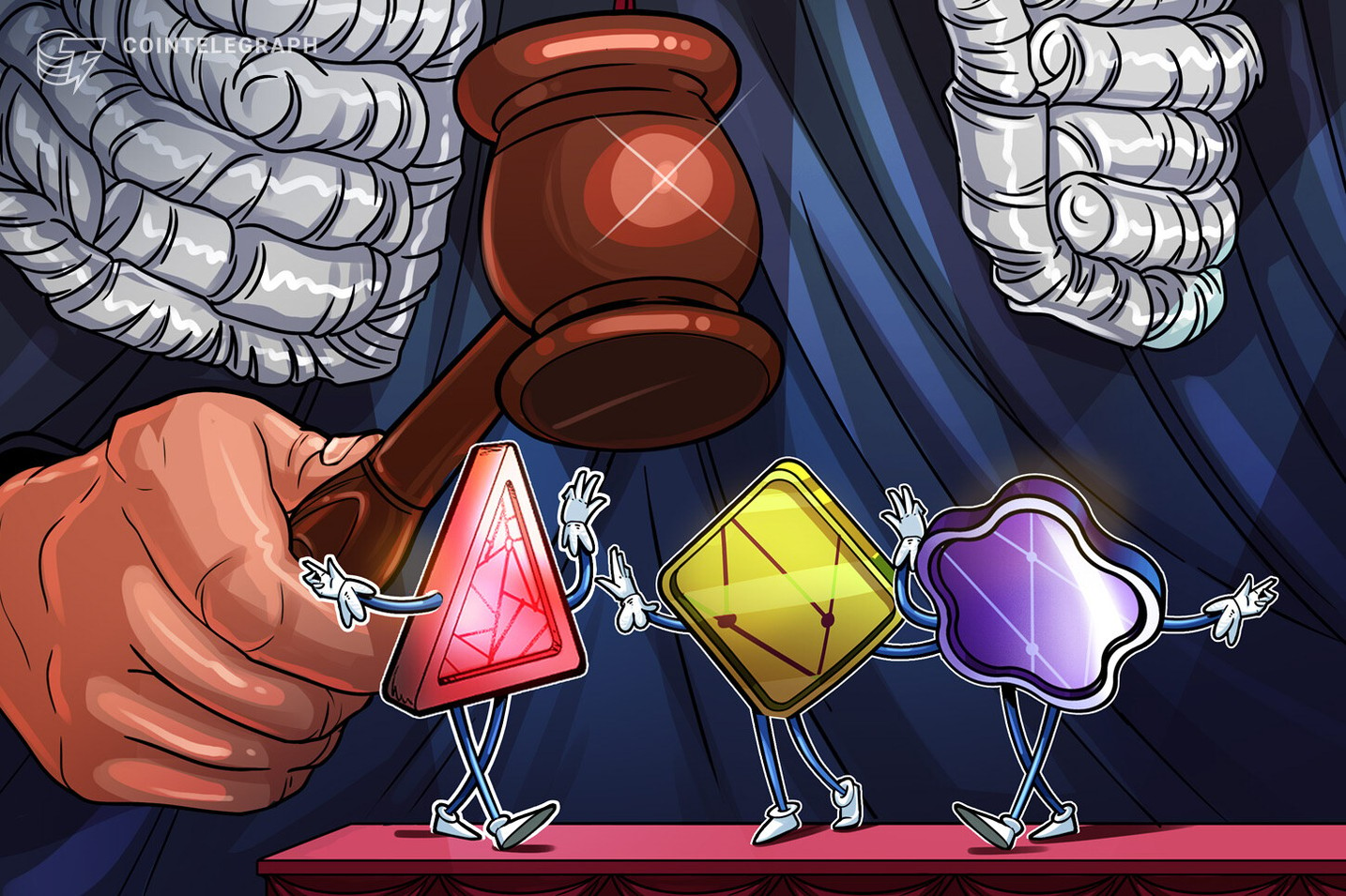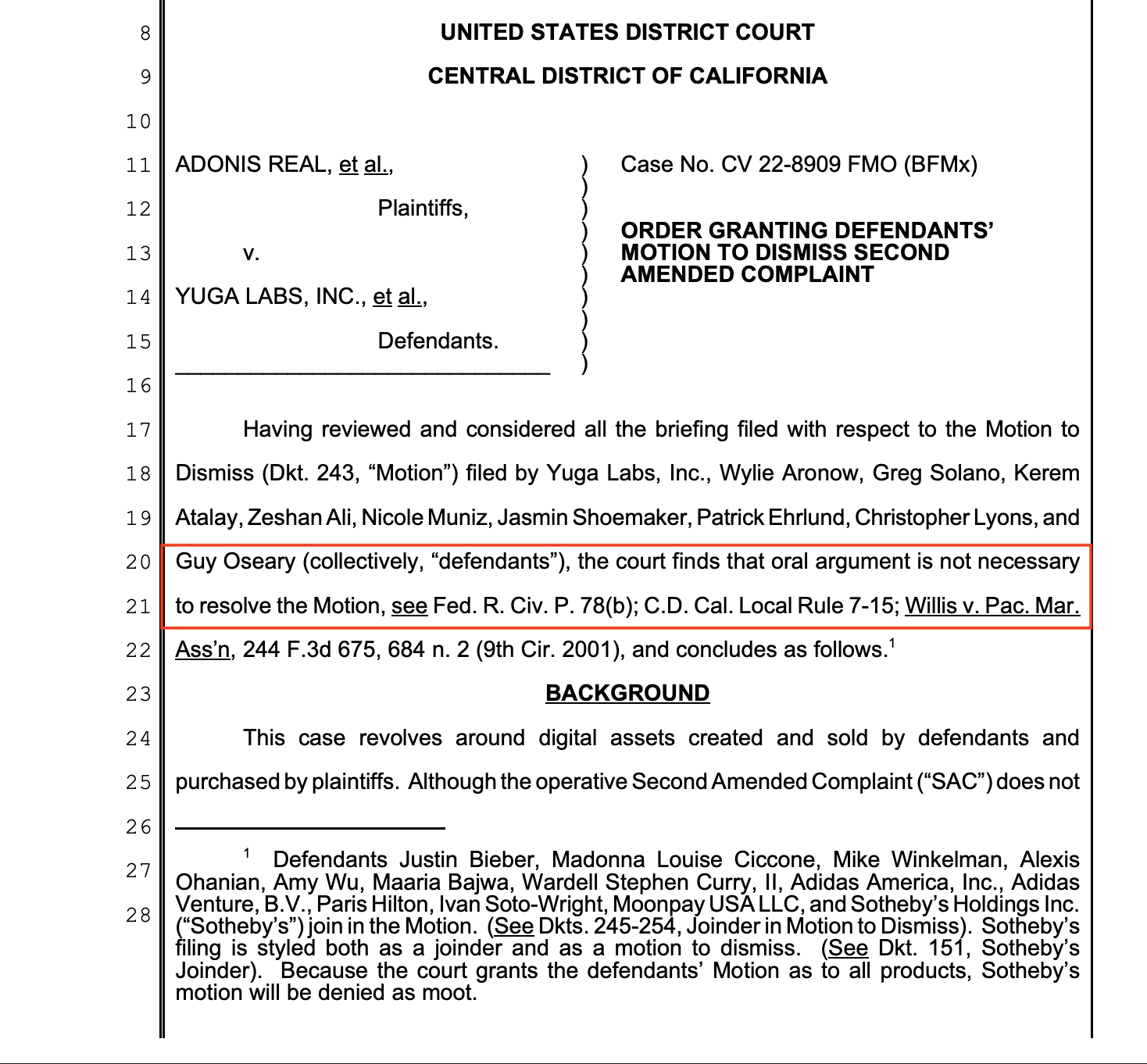
Court Dismisses Investor Case Against Yuga Labs for NFT Status
A judge ruled that NFTs from Yuga Labs do not meet the legal definition of securities, leading to the dismissal of a lawsuit filed by investors.
A judge in the U.S. has dismissed a lawsuit against the Web3 organization Yuga Labs, determining that the plaintiffs did not provide sufficient evidence to classify non-fungible tokens (NFTs) as securities.
Judge Fernando M. Olguin ruled that the plaintiffs were unable to demonstrate how the Bored Ape Yacht Club (BAYC), ApeCoin (APE), or other NFTs marketed by Yuga fulfilled the three conditions of the Howey test, which is employed by the Securities and Exchange Commission (SEC) to assess whether a transaction qualifies as an investment contract. The lawsuit was initially filed in 2022.
Yuga Labs promoted its NFTs as unique digital collectibles with additional membership benefits, thereby positioning them as consumable items rather than investment contracts, according to Olguin. He noted:
“The fact that defendants promised that NFTs would confer future, as opposed to immediate, consumptive benefits does not alone transmute those benefits from consumptive to investment-like in nature.”
 Judge Olguin dismisses investor lawsuit against Yuga Labs. Source: Court Listener
Judge Olguin dismisses investor lawsuit against Yuga Labs. Source: Court Listener
Furthermore, the judge pointed out that the plaintiffs did not establish whether the Bored Ape Yacht Club and other NFT series developed by Yuga could be considered a “common enterprise” with expectations of profits generated by third parties, underscoring legal precedents asserting that most digital assets do not constitute securities.
The NFTs, which are traded on public blockchain networks, did not create a consistent and dependent financial relationship between purchasers and Yuga Labs, disqualifying them as a “common enterprise” under the Howey Test, Olguin reiterated.
According to Consensys attorney Bill Hughes, individuals who bought NFTs from Yuga paid fees that were separate from the prices of the NFTs, as he commented on X.
Ultimately, Olguin decided that Yuga Labs did not make clear profit promises to potential NFT buyers, and that the project’s roadmap did not meet the benchmarks set by the Howey test regarding profit expectations.
“Statements about a product’s inherent or intrinsic value are not necessarily statements about profit,” Olguin conveyed.
“Statements about NFT prices and trade volumes are a somewhat closer call, but even then, these statements by themselves fail to establish an expectation of profit,” he added.
Related: NFTs ‘heating up’ as nightclubs, rappers jump back on bandwagon
No common enterprise with the explicit expectation of profit
Investors purchasing NFTs do not establish an ongoing financial link with Yuga Labs, which further asserts their classification away from a “common enterprise.”
